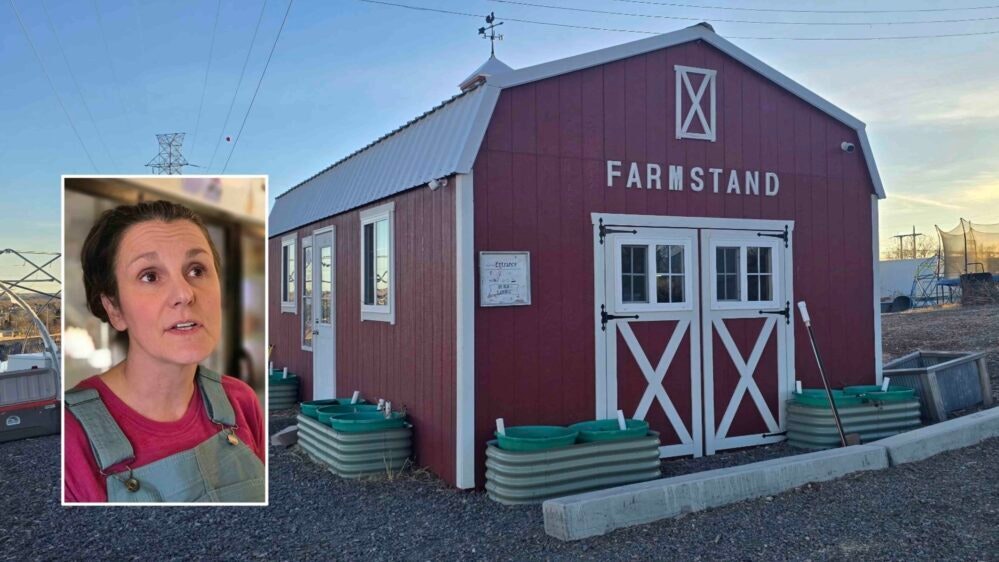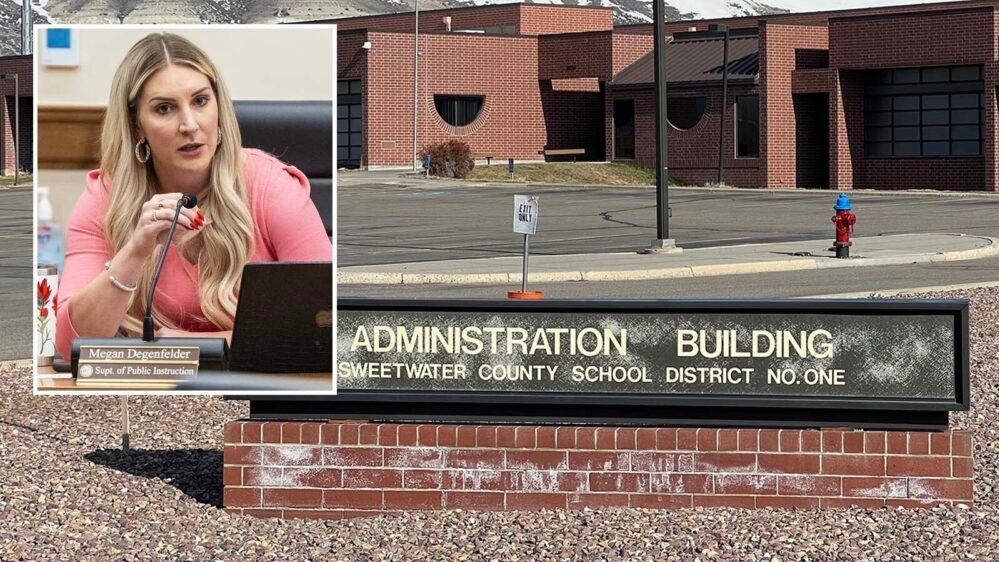Montana and Wyoming share the Beartooth Mountains, the Pryor Mountains, Bighorn National Recreation Area and Yellowstone National Park.
The states don’t typically argue about which one is home to the best, most precious federally owned public land. Recent legislative moves in Washington, D.C., however, have some wondering: Why is public land in Wyoming potentially up for sale, while none of Montana’s federal land is?
“Why aren’t we exempt and Montana is?” asked Rick Mickelsen, a retired oil and gas worker from Thermopolis and spokesperson for the Keep it Public Wyoming coalition.
Mickelsen was responding to recent news about a provision tucked into the sweeping Big Beautiful Bill Act that would authorize the sale of millions of acres of federal public lands across the West to generate revenue.
Republicans on Capitol Hill say the money would be used to create more affordable housing and pay down America’s crushing debt, while Democrats argue it’s to pay for proposed tax cuts for the wealthy.
But after intense public backlash in Montana, Republican Sen. Steve Daines, the state's senior senator, carved out an exemption for Montana.
All of this is happening amid what’s known as a reconciliation process, which allows senators to cut deals outside the view of public hearings and input.
"It's like a legislative shortcut. It evades the whole process of public input, environmental review, accountability,” Mickelsen told Cowboy State Daily.
"There's so many of us who not just our recreation, but our livelihoods, are dependent on this," he said, pointing to guides, outfitters and the growing number of religious groups, bicyclists and other outdoor recreationists who use public lands. "These lands will be cut off from those endeavors."
Mickelsen praised Montana Sen. Tim Sheehy for his staunch opposition to the sale of public lands — in Montana.
Tate Mitchell, press secretary for Sheehy, told Cowboy State Daily on Wednesday that, "Senator Sheehy believes public lands belong in public hands and opposes the sale of public lands. He is pleased to see Montana exempted.
“He’s taking care of his people now, doing right for his people. Why can't what's good for his state be good for my state also?”
The Deal
Daines has been in talks with Senate Energy and Natural Resources Chair Sen. Mike Lee, R-Utah, to ensure that any land sales provision is "very, very narrow in scope" and explicitly bars federal land sales in Montana, E&E News reports.
Despite his opposition to land sales, Daines has emphasized the importance of passing the broader budget bill, stating, "Failure's not an option. We must pass this bill."
On Wednesday, the conservation group Wild Montana said there’s a chance Daines could be trying to remove the sale of public lands from the bill altogether, not just for his state.
“While we appreciate that Senators Daines and Sheehy have both stated their opposition to public land sales, words alone are not enough,” Wild Montana said in a statement to Cowboy State Daily. “We’ve heard that Sen. Daines may be working on an amendment to remove the land sale provisions from the reconciliation bill.
“If that effort fails, we expect both senators to vote against the bill in its entirety.”
Wyoming Responds
A spokesperson for Sen. Cynthia Lummis told Cowboy State Daily she is tracking the issue closely.
"I am still reviewing Sen. Lee's proposal; however, we must address the reality that federal ownership of nearly half of all Western land — close to or exceeding 50% in states like Wyoming, Nevada, and Utah — creates significant challenges for local communities, state governments and efficient land management,” Lummis told Cowboy State Daily in a statement.
“The federal government doesn't need to perpetually own every piece of land it currently holds, and we must have honest conversations about smart, strategic land management that serves our communities while protecting our natural treasures,” she added.
Sen. John Barrasso, R-Wyoming, is on the Energy Committee with Lee and Daines.
When asked by Cowboy State Daily if he pushed for a similar exemption for Wyoming, his spokesperson Laura Mengelkamp responded.
“Federal land transfers are nothing new to the State of Wyoming,” she said in an email. “With almost 50% of the state controlled by the federal government, Senator Barrasso believes it would be a mistake to ignore responsible opportunities for housing or economic growth if they make sense for the state and local communities. The process will include public input from stakeholders across Wyoming.
“Senator Barrasso will continue working to ensure Wyoming’s outdoor treasures and existing rights, including grazing rights, are protected in the final bill.”
Montana Politics
The Montana exemption, according to those contacted by Cowboy State Daily who are tracking this story closely, was widely reported as a direct result of pressure from Montana's congressional delegation after the state's entire delegation — including Rep. Ryan Zinke, a former Interior Secretary — came out strongly against any sale of public lands in their state.
"I do not support the widespread sale or transfer of public lands. Once the land is sold, we will never get it back. God isn't creating more land," Zinke stated in a recent statement.
John Todd, executive director of Wild Montana, zeroed in on the attempt by Montana’s senators to appease both their constituents and those in the Senate calling for the sale of public lands.
"Senator Daines says he opposes public land sales, but also says this bill 'must pass,’” Todd says in a statement. “Senator Sheehy says public lands belong in public hands, but allowing this provision to advance tells Montanans the opposite.
"Public lands belong to all Americans, and they are not for sale.”
The Wilderness Society has analyzed the potential impact across Western states, with Wyoming having among the fewest acres potentially up for sale compared to states like Nevada, Utah and California.
The group calculates the total acreage for Wyoming to be 14,940,234 in a report that has been deemed by some, including Republican Wyoming U.S. Rep. Harriet Hageman, as inaccurate.
Under the current Senate draft, an estimated 250 million acres could ultimately be eligible for sale across 11 Western states, the group claims. Hageman counters, saying all those lands aren’t in the bill.
Supporters point out that Sen. Lee's proposal could create a public process to identify unused federal land within 1 to 5 miles of population centers for potential housing development, while explicitly protecting existing uses like grazing permits, ski areas, and mining claims from being sold.
It's not clear whether other states might seek similar exemptions to Montana's, or if such deals are even possible at this stage of the legislative process.
For Mickelsen and other Wyoming public land advocates, the political deal making that led to the Montana exemption raises questions like, "What happened there?"
David Madison can be reached at david@cowboystatedaily.com.





